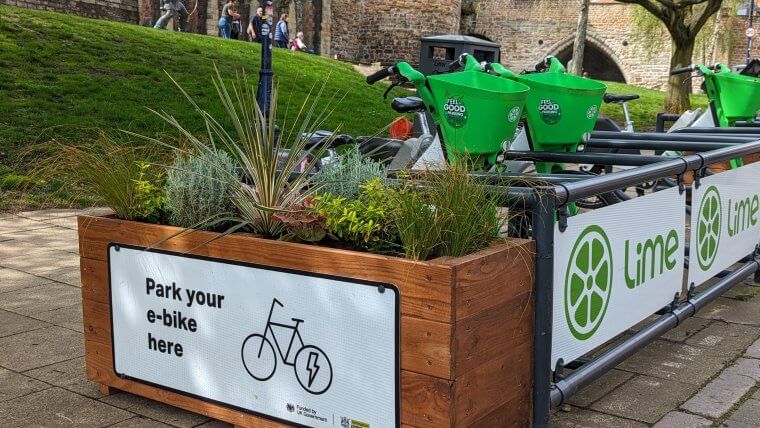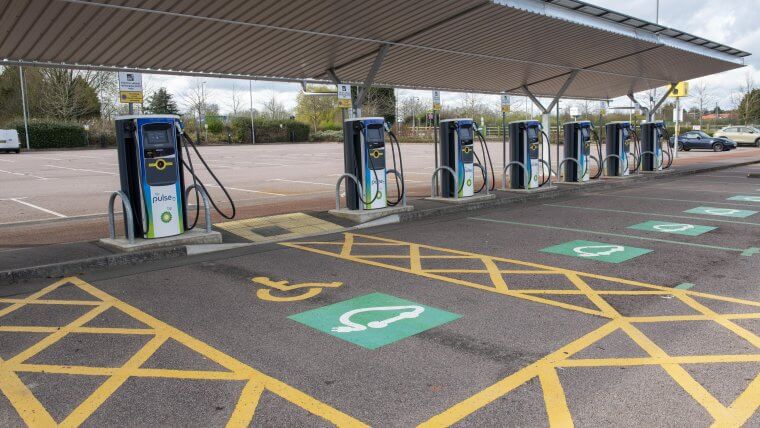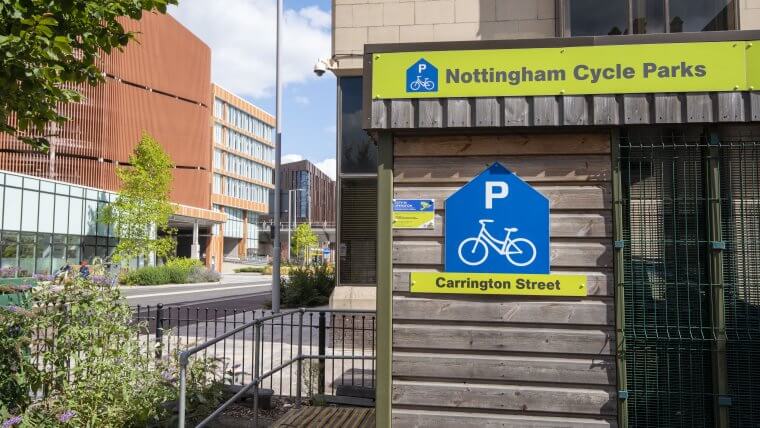10 June

Air pollution affects us all with every breath we take, and it takes action by all of us to improve our air quality.
Many factors contribute to air pollution in the city but transport is one of the biggest polluters. By making small changes to the way we travel, together we can make a big difference. That’s why Nottingham City Council has been leading the way investing in sustainable transport, to make it easier to get around in a way that is better for our health, and our environment.
Why not try to travel differently this Clean Air Day? Start small and see if you can keep it up to make every day a clean air day.
What you can do to beat air pollution:
-
Swap your drive to cycle or stride
Give your car the day off and walk, cycle or use public transport instead. If the distance puts you off, you could park further away and walk the rest of the way. What’s more, walking has the extra benefits of being cheaper and good for your health too. If you’d rather get pedalling, Nottingham boasts extensive cycle routes, hubs to leave your bike at and a bike hire scheme. And if you’re a bit rusty – or want to learn – we can help with that too.
-
Take the bus or tram
Not only are buses an efficient way of moving people, they also have some of the lowest emissions per person of any other mode of transport. And they’re only getting greener! The brand new Euro VI diesel, biogas and electric buses on Nottingham’s streets have some of the lowest emissions around. Or take the electric tram, which is powered using renewable energy.
-
Switch off your engine
When you’re stationary in a petrol or diesel car – for example at a level crossing, waiting outside school or to pick someone up – turn off your engine. This is especially important outside schools – did you know small children are particularly vulnerable to vehicle emissions due to their height?
-
Find a quieter route
Explore your neighbourhood and take a route away from the main roads. Not only will you avoid the worst traffic pollution, you might discover something new.
-
Car share for cleaner air
You can save money, network and reduce your carbon footprint simply by sharing a lift. Liftshare is a service which connects you with other people who live and work in Nottingham to save money and have company on your commute.
-
Go electric
Electric vehicles are often cheaper to run and maintain. Nottingham is leading the way in the uptake of electric and other ultra low emission vehicles (ULEVs) – we’ve installed more than 250 charge points in the last two years, and we’re trialling the UK’s first bus lane that lets ULEV drivers in too. For the convenience of a car without the costs of owning one, you could think about whether Enterprise Car Club might be right for you. They’ve got plans to expand the number of electric and hybrid vehicles available to book.
Why is clean air so important?
We may not be able to see it, but air pollution is having serious, long-term effects on public health. Not only is polluted air bad for our lungs, it can also result in heart problems and cancer too.
People with respiratory conditions and children are particularly vulnerable, but everyone is affected.
How is the council helping?
Nottingham City Council has been tackling air pollution for a number of years through a series of innovative measures, such as the Workplace Parking Levy, which has allowed significant investment in cleaner public transport. We’ve also made improvements to our cycle routes and facilities, and supported Nottingham City Transport to grow the world’s largest fleet of double deck biogas buses.
Last year we became the first council in the country to have our Local Plan to Improve Air Quality approved by the government. This included ongoing projects to retrofit 171 diesel buses, reducing their harmful emissions, and to require all hackney cabs in the city to be ultra low emission vehicles (ULEVs) by 2025. In addition we’re converting our own fleet – in March we welcomed the first electric street sweepers and cage tippers in the UK.
This year we’re introducing anti-idling legislation, allowing us to take action against motorists who leave their engines running, particularly outside schools and in taxi ranks.
More information on what the council has done to tackle air pollution, and how we’re supporting residents and businesses to reduce their emissions, is available here.





